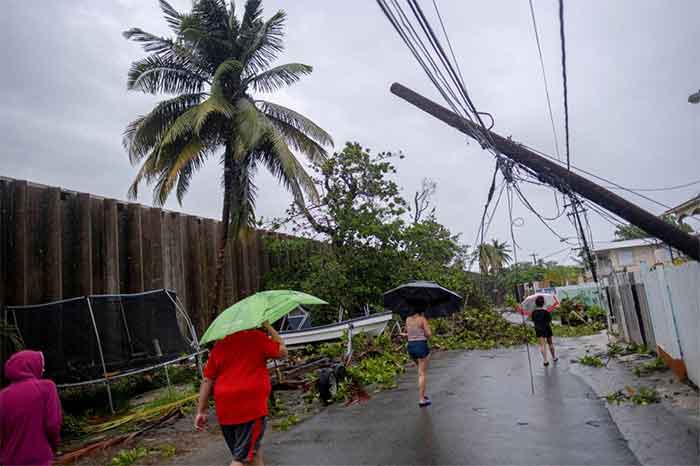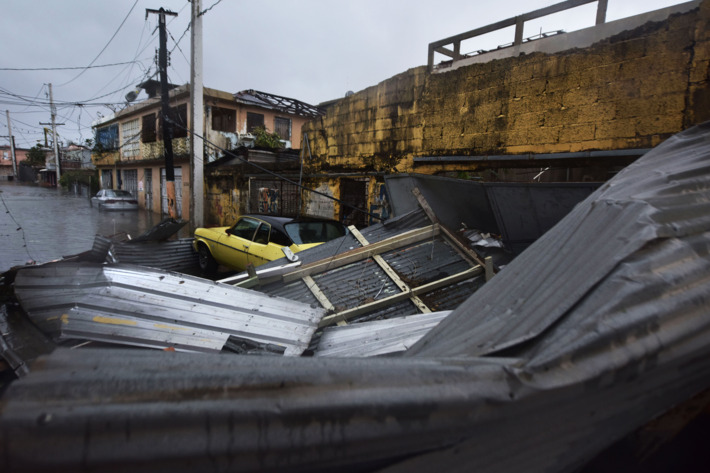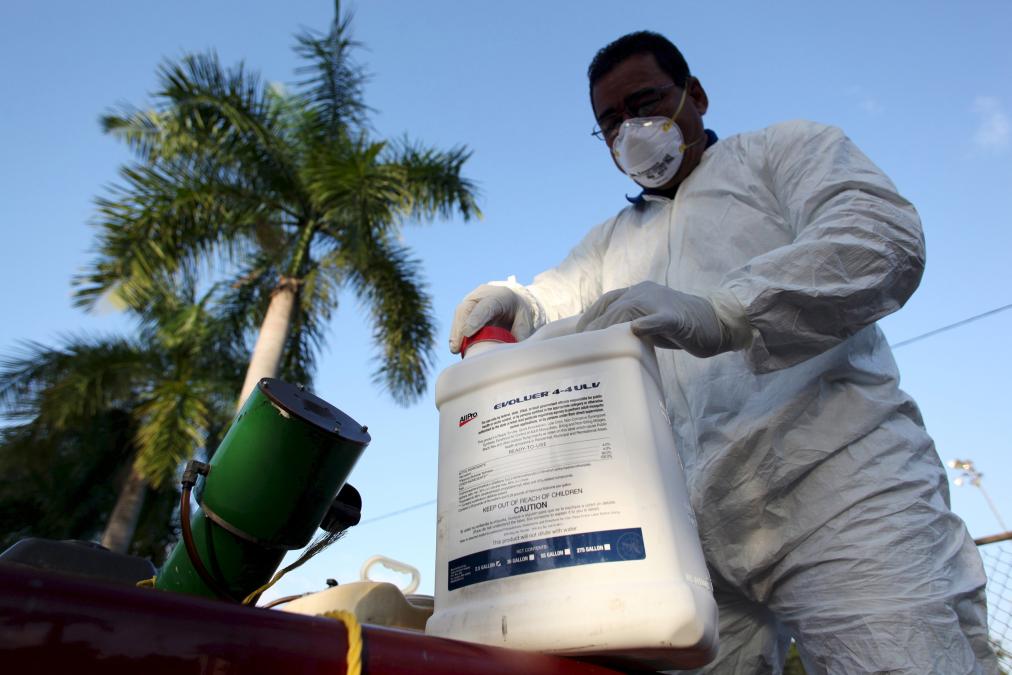
The Federal Emergency Management Agency (FEMA) is failing in its mission to help those in need after a disaster. Its mandate is simple — repair and rebuild — but racism, economic bias, and corruption leave the destitute without help. In Puerto Rico, the bureau made a bad situation worse after Category 4 Hurricane Maria devastated the area in 2017. When Hurricane Fiona hit this September, FEMA again floundered. Compounding the problems is the fact that, as a U.S. territory, the colony is treated like an abused stepchild.
Puerto Rico never recovered from the devastation of Hurricane Maria. Its electric system was destroyed and subsequently privatized. Congress put FEMA in charge of repairs but as of 2021, according to ABC News, the agency spent less than 1% of the $12 billion allotted to restore the power grid. The island suffers constant blackouts. Furthermore, to this day, 80% of the budget for wrecked infrastructure and buildings has not been spent. Tens of thousands of survivors have lived under leaky blue tarps for years.
Carmen Yulín Cruz, the mayor of San Juan at the time, called the failures in the federal response to the crisis “something close to a genocide.”
With little reconstruction accomplished, much milder Hurricane Fiona still caused serious damage. Once again FEMA was called in. A week after the storm, a million people were without power and hundreds of thousands lacked running water. Residents feared a repeat of Maria where 60% of homeowner applications were denied and poor, rural, Afro-Latinos were neglected.
Rife with fraud and bigotry. As climate-fueled disasters accelerate, more people will need federal relief. Unfortunately, FEMA is rampant with corruption. Even though it must compete for money with higher-status anti-terror groups in the Department of Homeland Security (DHS), it is still a cash cow for disaster profiteers.
In 2019, FEMA’s Deputy Regional Administrator in charge of Puerto Rico’s restoration was indicted for fraud. She took bribes from a company that was paid $1.8 billion in federal funds to repair the electrical grid — which has yet to be fixed.
The organization has a history of allocating no-bid contracts to firms with little disaster experience. In procuring tarps post-Maria — for waterproof make-shift housing — the first two companies contracted failed to deliver and the third was investigated for fraud.
According to DHS’s own Office of Inspector General, FEMA mismanaged $65 million intended to help Puerto Rico residents. Another investigation found that the agency lost track of nearly $257 million worth of supplies. Commented Lía Fiol-Matta, with LatinoJustice PRLDEF, a Puerto Rican civil rights group, “These findings led to great suspicion about FEMA, but also it increased the probability that fraud has been committed.”
The U.S. Commission on Civil Rights found that post-Maria FEMA discriminated against disabled people, Black and Latino residents, those of low income, and those who did not speak English. There were insufficient Spanish-speaking workers. Because money is doled out based on how much an applicant has invested in a house, poor homeowners got little relief due to low property values and informal proof of ownership.
FEMA uses outside labor instead of hiring local workers desperate for jobs. Its refusal to work with community-based organizations puts vulnerable populations like LGBTQ+ folks and non-English language speakers at a disadvantage. Furthermore, the American Federation of Government Employees (AFGE), which represents the agency’s employees, reports many vacancies. Low-paid temporary workers and for-profit private contractors fill the void.
A federal panel established after Hurricane Katrina slammed FEMA for persistent income-based disparities concluding that “lower-income individuals sink further into poverty after disasters.”
There is a 40% increase in bankruptcy in people of color neighborhoods while whiter, wealthier areas stay stable. Historic Black and Latino neighborhoods are pockmarked with empty lots and dilapidated homes that people cannot afford to fix.
Adding to Puerto Rico’s problems is its status as a U.S. territory. In comparing aid responses on the mainland and on the island, a recent report noted that “if you were a Puerto Rican national, you faced perceptions that you were not really Americans. FEMA’s complete lack of preparedness to respond to Maria seemed directly proportional to that perception.”
A humanitarian crisis. The U.S. government has utterly failed Puerto Rico, from Congress to Department of Homeland Security. To survive, neighbors and community groups are working together to fill in the gaps, creating mutual aid networks to help rebuild homes, repair water damage and share food. Like all those abandoned by Uncle Sam and FEMA, the people of Puerto Rico need a system that works for their benefit.
Originally published in Socialism.com













































